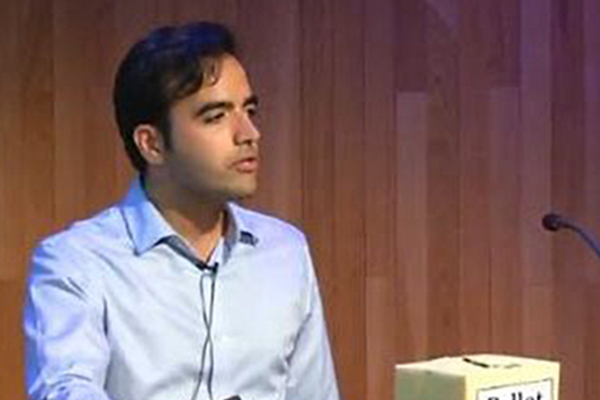UCLA Electrical Engineering Welcomes Asst. Professor Sam Emaminejad

Sam Emaminejad’s research focuses on developing an ecosystem of integrated portable, wearable and in-vivo physiological and environmental monitoring platforms to enable personalized and precision medicine. To this end, he utilizes micro- and nanotechnologies to isolate, control and sense target biological and chemical species in human samples and their surrounding environments. With this approach, he aims to enable the collection of large data sets at population levels that inform clinical investigations and ultimately generate predictive algorithms to understand the clinical needs of individuals and society as a whole.
Sam received his BASc (2009) and MS/PhD (2011/2014) degrees in Electrical Engineering from the University of Waterloo and Stanford University, respectively. He pursued his PhD thesis at Stanford Genome Technology Center where he developed low-cost and portable biosensing and bioelectronics platforms. Furthermore, as a joint-postdoctoral scholar at UC Berkeley and Stanford School of Medicine, Sam exploited flexible electronics technology to create non-invasive wearable sensors and systems for physiological monitoring and diagnostic applications. Sam has previously worked as an ASIC and Analog Designer in semiconductor companies such as Analog Devices. Sam was awarded the Microsoft Merit and Natural Sciences and Engineering Research Council (NSERC) scholarships. He was also the recipient of the Best Paper Award at the IEEE Sensors conference in 2013 and BSAC Best Poster Award in spring of 2016. His current work has been widely reported by various media outlets including Nature, Science, MIT Technology Review, Time, The Wall Street Journal and Newsweek.
